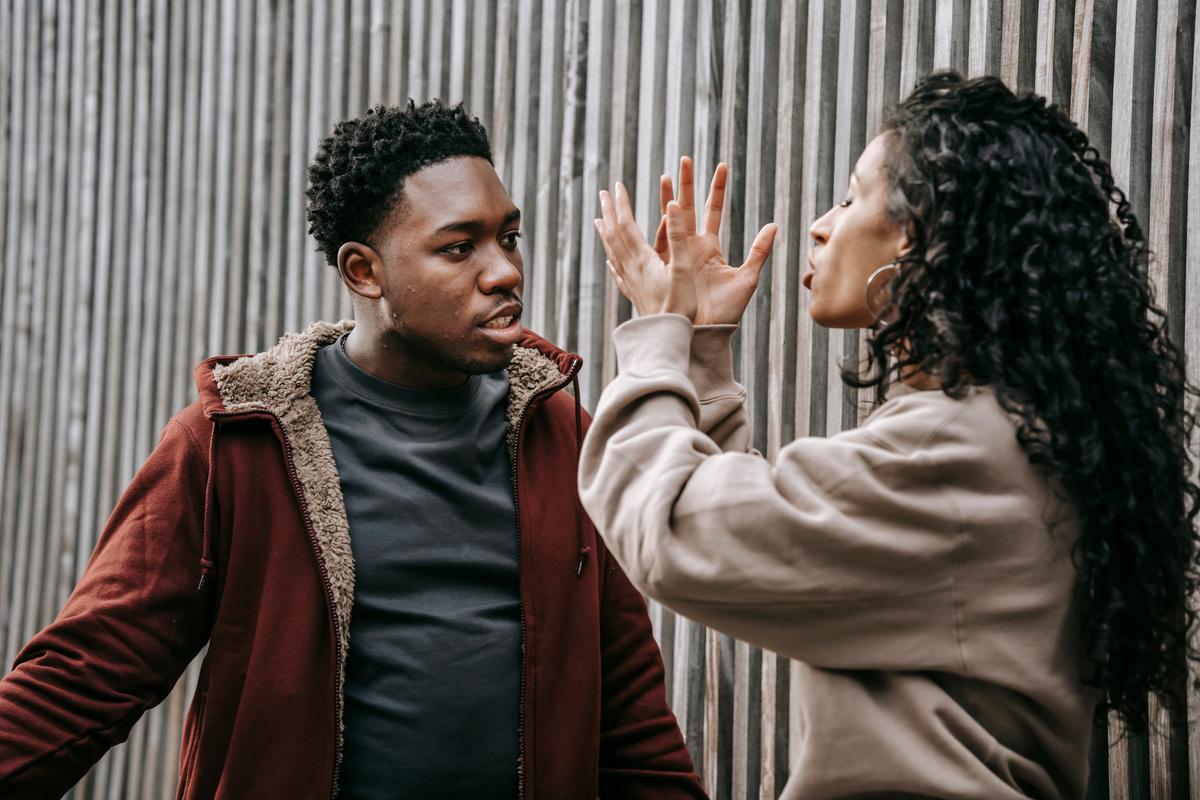
5 minute read
Chasing Clarity
from Chasing Clarity
by youxbespoke
In the intricate ballet of human interaction, relationships are the music that give rhythm to our lives. However, sometimes this rhythm is disrupted by persistent, underlying discordant notes red flags that signal underlying issues Addressing these alarms is crucial, not just for the harmony of our relationships but also for our personal growth and well-being.
Red flags in relationships act as warning alarms, signaling deeper, unresolved issues and conflicts. These signals can manifest in a myriad of ways, from overt breaches of trust and respect to subtler, more nuanced signs like the consistent dismissal of your thoughts and feelings. They are indicators of underlying discord, signs that the relationship may be deviating from a path of health and mutual respect, often pointing toward potential harm, dissatisfaction, and a lack of fulfillment.
Red flags in relationships act as warning alarms, signaling deeper, unresolved issues and conflicts.

How to Recognize Them:
1. Inconsistent Communication: A lack of alignment between words and actions is a crucial sign of underlying issues.
2. Extreme Jealousy: This can be a precursor to more severe problems like possessiveness and controlling behavior
3.Avoidance of Serious Conversations: Regularly avoiding discussions about the relationship's future may indicate commitment issues or unresolved personal conflicts.
4. Lack of Support: If your partner constantly undermines your goals, ambitions, or achievements, it might be a red flag indicating a lack of respect or support
5 Gaslighting: If your partner constantly dismisses your feelings and perceptions, making you doubt your reality, it’s a serious red flag indicating manipulation and emotional abuse.
Why We Stay:
Despite the presence of red flags, many choose to remain in unhealthy relationships due to a complex interplay of emotions, fears, and hopes
The emotional bond and shared experiences create a strong attachment, making the idea of leaving daunting and painful.
The fear of loneliness and the societal pressure to maintain the relationship further complicate the decision-making process Additionally, the hope and belief that the partner will change, and the relationship will improve, often keep individuals anchored in dysfunctional relational dynamics.
Why We Often Miss Them
Our capability to recognize red flags is frequently impaired by a variety of factors. The initial stages of relationships are often laden with a sense of optimism and a surge of feel-good hormones, making us prone to overlooking potential issues. This selective perception, fueled by the intense emotional connection and the desire for acceptance, often leads us to rationalize or downright ignore the warning signs, hoping that things will eventually get better. The deep-seated fear of confrontation, rejection, or ending up alone can further blind us to the glaring issues in the relationship, trapping us in a cycle of denial and rationalization.
The Cost of Ignoring Red Flags:
Ignoring red flags can result in enduring unhealthy, detrimental relationships that severely impact our well-being. A study in the Journal of Social and Personal Relationships found that individuals often perceive potential red flags in the initial stages of the relationship but choose to overlook them due to their emotional investment This oversight can later lead to significant relationship dissatisfaction[1]. This neglect can lead to a progressive accumulation of emotional pain, resentment, anxiety, and mistrust, eroding the essence of the relationship over time.
I was in a relationship where my partner was constantly undermining my career goal sand aspirations. It was subtle at first, small remarks and snide comments. But as time progressed, it became a persistent pattern of disdain and disrespect I overlooked it initially, convinced it was just his way of looking out for me. It was only when a close friend pointed out this red flag that I started seeing the destructive pattern clearly. Acknowledging it was painful, but it led me to confront the issue and eventually exit the relationship, paving the way for personal growth and healthier relationships in the future.
- KATHERINE M., NEW YORK
Steps to Address Red Flags:
1. Seek Clarity: Open a dialogue about your concerns, ensuring communication is clear, honest, and respectful
2 Establish Boundaries: Clearly define what behavior is unacceptable and stick to your limits.
3. Seek Professional Guidance: Counseling can provide a supportive environment to navigate relational difficulties and personal growth.
4. Prioritize Self-Care: Regularly engage in activities that promote your well-being, resilience, and self-esteem, enabling you to maintain a balanced perspective.
5. Develop a Support Network: Cultivate strong, supportive relationships with friends and family to provide perspective, support, and guidance when navigating relationship difficulties.

Facing relationship red flags is never easy, but it’s a crucial step towards fostering healthier, more fulfilling connections. It’s not merely about identifying issues but about taking action, whether that involves resolving underlying problems or, in some cases, leaving the relationship. Research from the National Institutes of Health suggests that being in an unhealthy relationship can have significant negative effects on mental health, with individuals in such relationships having a higher likelihood of experiencing symptoms of depression and anxiety[2].
By embracing self-awareness, courage, and open communication, we can transform our relationships and, consequently, our lives, fostering connections that are truly nurturing and enriching Remember, recognizing and addressing red flags is not a journey of criticism and blame, but a path of growth, understanding, and love. It's about creating a space where both partners feel seen, heard, valued, and respected, paving the way for a deeper, more meaningful connection.

My relationship was marked by extreme jealousy and possessiveness, which I initially mistook for passion and deep love. It reached a point where every interaction I had with the outside world was scrutinized and criticized. The constant accusations and distrust were red flags I chose to ignore, thinking that it would get better with time. It affected my mental health and self-esteem deeply. Seeking professional advice helped me recognize the toxicity of the relationship, allowing me to break free and start the journey towards healing and self-discovery.
- DAVID R., LOS ANGELES










